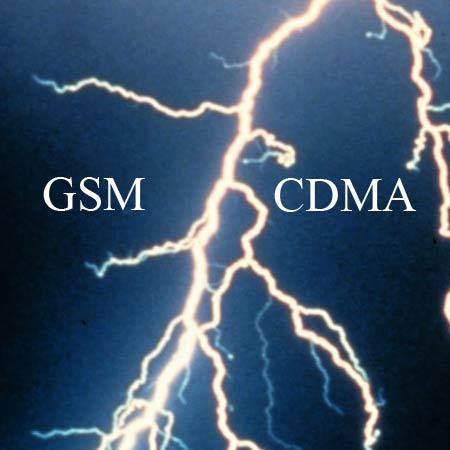
If you’ve been juggling between GSM and CDMA technologies. Well here we bring to you the gist of both these technologies. To begin with, there is a term “Multiplexing” from where they have been originated. Multiplexing is the process by which various signals share the same bandwidth. The main channel is divided into various logical channels. Multiplexing can be extended to multiple access or channel access like TDMA (Time Division Multiple Access), FDMA (Frequency Division Multiple Access), CDMA (Code Division Multiple Access) etc. Well TDMA itself is the GSM technology.
“GSM” stands for Global System for Mobile Communications which was earlier called Groupe Special Mobile. Though GSM was created in 1982 by the European Conference of Postal and Telecommunications Administration, the first network was launched in 1991. Qualcomm invented CDMAone, CDMA2000 and CDMA 1xEVDO.
Our telecom industry is divided into two parts CDMA and GSM. GSM offers four separate frequencies like 900MHz and 1,800MHz bands in Europe and Asia likewise 850MHz and 1,900MHz bands in North America and Latin America. GSM phones use SIM (Subscriber Identity Module). You have to buy a prepaid or post paid SIM card from the GSM network provider. It gives you the liberty to switch to various handsets and you can easily transfer your contacts and other important data as well. Whereas CDMA is handset locked. You have to buy the entire package with the handset that can be prepaid or postpaid. Unlike before, it is now possible to change the handset with CDMA service provider. You have to pinch your pocket for a handset change card at a fair rate. With GSM phones you can easily change the service provider, which looks quite difficult in the case of CDMA phones. GSM subscribers have a wider range of handsets to choose compared to CDMA.
GSM has a larger segment of users across the globe. In case of battery use, CDMA looks in a win win situation. CDMA stands superior with network capacity. CDMA definitely wins at Data Transfer Speed, downloads are faster due to BREW (Binary Runtime Environment for Wireless) technology, whereas GPRS (General Packet Radio Service) technology of GSM provides slower transfer of data. GSM is soon coming up with the 3G technology with Apple’s iPhone. Well CDMA too has its new version called EVDO or CDMA2000.
According to a recent survey conducted by India-cellular.com as on March 31, India has 260736913 subscribers out of which 192355939 use GSM and 68380974 uses. But the North American market is ruled by the CDMA handsets.
Let’s not get too technical. Looking at them one by one.
CDMA
GSM
Both these technologies are not hardcore rivals, as there are phones that use both the technologies like the Samsung SCH-W579 dual-mode phone that does tri-band GSM (900/1800/1900) and CDMA (800/1900). Reliance Infocom is also said to be coming up with a device that supports both the platforms. We really can’t say which one is the best. There is lots of space in the telecom market to fit in both these technologies
